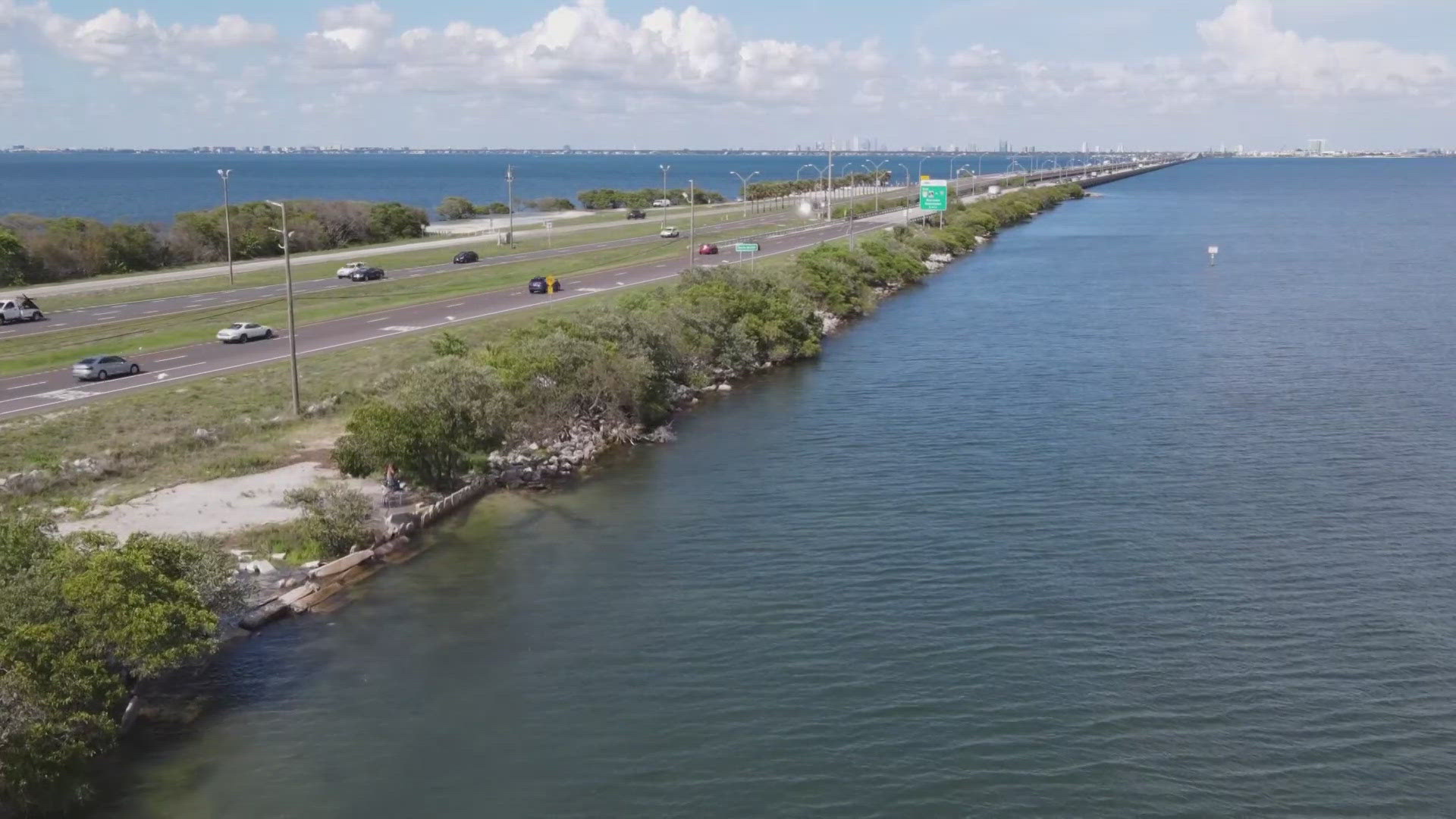ORLANDO, Fla. — Ricardo Garcia's memories became the enemy when he returned home from his military service in the Middle East.
"I couldn't sleep," he recalled. "Vivid nightmares. Just of being back over there."
When his unit wasn't under mortar attack, the U.S. Air Force veteran was directing medical evacuations in Afghanistan.
"We would see all the wounded patients and when we’d get kids that would come in... like they were just at the wrong place at the wrong time," Garcia said. "I think those were the hardest things to see.”
The sights, sounds and smells stuck with him.
On guard, in denial
It's estimated that as many as 20 in every 100 veterans who served in Iraq and Afghanistan have post traumatic stress disorder, according to the U.S. Department of Veterans Affairs.
At first, Garcia didn't want to acknowledge what he was feeling. He hoped time would heal it.
“I wanted to suppress it because I felt like if I did that it would just go away," Garcia said. "I didn’t want to feel like I had some sort of weakness or deficiency.”
Imagine something as simple and commonplace as filling your vehicle up with gas becoming debilitating because you associate the smell of fumes with explosions. Or worse, picture the panic a pile of trash on the side of the road might induce because it looks similar to the bomb that killed a member of your unit.
For some combat veterans struggling with PTSD, they don’t have to imagine it, says Dr. Deborah Beidel, a psychology professor who started UCF Restores, a clinical program at the University of Central Florida's psychology department, in 2010.
Harnessing those traumatic experiences in a controlled environment could hold the key to successful treatment.
“We’ve got to come to the acknowledgment that this is a seriously debilitating disorder, that people need help," Beidel said.
As real as it gets
That help looks like a video game at first glance. The program employs virtual reality technology.
“The most successful treatment for post traumatic stress disorder is what’s called exposure therapy," Beidel said.
Like its name implies, exposure therapy exposes people to things or events that frighten them.
Using a headset and handheld controller, the UCF Restores system immerses a subject into a virtual, but familiar, world built around their specific recurring thoughts or triggers that bring on their PTSD symptoms.
“Usually we’ll ask them which memory is causing the most nightmares, the most intrusive thoughts," explained graduate student Michael Gramlich, who demonstrated how the technology works with the help of Garcia.
The unique therapeutic technique not only puts a subject in a 360-degree virtual world they can see, but also hear, feel and even smell.
Gramlich says the subject sits on a platform that vibrates in coordination with what's happening in the virtual world. Explosions can be simulated and a fan system next to the subject can even blow smells associated with the event playing out before their eyes.
"If an explosion went off, we might have burning rubber," Gramlich said. "We can add in different odors, different sounds as well as different vibrations, whatever increases that immersion of being in that event."
Gramlich says individuals are eased into the virtual situation and then repeatedly exposed to the triggering event while being monitored by a counselor who is asking how what they're seeing and hearing is making them feel and why.
“We would essentially recreate this event over and over until it no longer elicits distress," Gramlich said.
Beidel says it's not about getting people comfortable with horrific events but about detaching specific feelings or fears that have become associated with that event.
"By putting you in that situation, that original memory becomes broken apart," she said. “You’re now learning … that every time you smell diesel fuel an I.E.D. explosion is not going to occur or that trash on the side of the road is just trash."
The exposure overrides older memories.
Life, restored
Of the more than 300 veterans and active military service members who've gone through the program since 2011, Beidel says 67 percent finished no longer meeting the diagnostic criteria for P.T.S.D.
There are two versions of virtual-reality therapy offered by UCF Restores. A 17-week course offers a more traditional out-patient treatment while an intensive three-week program uses all-day sessions.
The program is open and free to all veterans active military members who are residents of Florida. Individuals taking part in the intensive three-week course are even eligible for free lodging in the Orlando area.
In May, the program was awarded a $10 million grant by the U.S. Army to expand its work to three military medical centers: the Dwight D. Eisenhower Army Medical Center in Georgia, the Naval Medical Hospital Portsmouth in Virginia and Marine Corps Base Camp Lejeune in North Carolina.
Garcia is nearly the end of his 17-week course. He says—as the name of the program suggests—he feels restored.
"It’s been absolutely incredible," he said. “P.T.S.D. it has such a bad notion—so I call it post traumatic self discovery."
"It’s not to erase the memories because that memory is never ever going to go away," Beidel said. "The goal of our therapy is to give people their life back.”
Beidel says the program is also open to first responders and Pulse survivors suffering from P.T.S.D. and could soon offer help to military victims of sexual assault.
“We know that there’s lots of people around the state that need this and we want to let people know we’re here because we have the resources to do it," she said.
More information on UCF Restores can be found here on the clinic's website.
►Make it easy to keep up-to-date with more stories like this. Download the 10News app now.
Have a news tip? Email desk@wtsp.com, or visit our Facebook page or Twitter feed.



